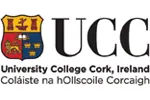

Ireland
University College Cork (UCC)| The award | How you will study | Study duration | Course start | Domestic course fees | International course fees |
|---|---|---|---|---|---|
| MSc | Full-time, Part-time | 1 year | September | - | - |
Overview
The MSc in Bioinformatics and Computational Biology at UCC is a one-year taught masters course commencing in September. Bioinformatics is a fast-growing field at the intersection of biology, mathematics and computer science. It seeks to create, advance and apply computer/software-based solutions to solve formal and practical problems arising from the management and analysis of very large biological data sets. Applications include genome sequence analysis such as the human genome, the human microbiome, analysis of genetic variation within populations and analysis of gene expression patterns.
Course Details
This MSc course will provide theoretical education along with practical training to students who already have a BSc in a biological/life science, computer science, mathematics, statistics, engineering or a related degree.
The course has four different streams for biology, mathematics, statistics and computer science graduates. Graduates of related disciplines, such as engineering, physics, medicine, will be enrolled in the most appropriate stream. This allows graduates from different backgrounds to increase their knowledge and skills in areas in which they have not previously studied, with particular emphasis on hands-on expertise relevant to bioinformatics:
As part of the MSc course, you will carry out a three month research project in a research group in UCC or in an external university, research institute or industry. The programming and data handling skills that you will develop, along with your exposure to an interdisciplinary research environment, will be very attractive to employers. Graduates from the MSc will have a variety of career options including working in a research group in a university or research institute, industrial research, or pursuing a PhD.
Fact File
Course Code: CKR33 Full-time, CKR41 Part-time
Course Title: Biology - Bioinformatics with Computational Biology
College: Science, Engineering and Food Science
Duration: 1 year Full-time, 2 years Part-time
Teaching Mode: Full-time, Part-Time
The part-time option will be taught during weekday working hours over 2 years.
Qualifications: MSc
NFQ Level: Level 9
Costs: 2017/2018 Irish/EU EUR 6,000
2017 Entry Requirements: Entrants to the programme must be holders of an Honours Bachelor degree, or equivalent qualification, in a discipline with a significant element of Mathematics, Statistics, Engineering, Computer Science or Biology, with a minimum of Second Class Honours Grade 1. In addition, candidates with Second Class Honours Grade 2 may also be considered for places, following assessment by the Programme Director (subject to the approval of the College of SEFS) if they are also proficient in mathematics as evident from grades in Higher Leaving Cert maths or Undergraduate maths modules, and have at least one year of proven and relevant Biological, Mathematical or Computational work or Postgraduate experience.
Closing Date: See details in application procedure section below
Next Intake: 11th September 2017
Course Practicalities
Full-time students must complete 12 taught modules and undertake a research project. Part-time students complete about six taught modules in each academic year and undertake the project in the second academic year. Each taught module consists of approximately 20 one-hour lectures (roughly two lectures per week over one academic term), as well as approximately 10 hours of practicals or tutorials (roughly one one-hour practical or tutorial per week over one academic term), although the exact amount of lectures, practicals and tutorials varies between individual modules.
Assessment
There are exams for most of the taught modules in May of each of the two academic years, while certain modules may also have a continuous assessment element. The research project starts in June and finishes towards the end of September. Part-time students will carry out their research project during the summer of their second academic year.
Application Procedure
Application for this programme is on-line atwww.pac.ie/ucc. Places on this programme are offered in rounds. The closing dates for each round can be found here. For full details of the application procedure click How to Apply.
All required documentation must be either uploaded to your online application, or sent in hard copy to The Postgraduate Applications Centre, 1, Courthouse Square, Galway, immediately after an application is made.
Further Contact Information
Course Coordinator
Dr Marcus Claesson
Department of Microbiology
Tel: +353 21 490 1390
Email:[email protected]
2017 Entry Requirements: Entrants to the programme must be holders of an Honours Bachelor degree, or equivalent qualification, in a discipline with a significant element of Mathematics, Statistics, Engineering, Computer Science or Biology, with a minimum of Second Class Honours Grade 1. In addition, candidates with Second Class Honours Grade 2 may also be considered for places, following assessment by the Programme Director (subject to the approval of the College of SEFS) if they are also proficient in mathematics as evident from grades in Higher Leaving Cert maths or Undergraduate maths modules, and have at least one year of proven and relevant Biological, Mathematical or Computational work or Postgraduate experience.
Closing Date: See details in application procedure section below
Next Intake: 11th September 2017
Contact University College Cork (UCC) to find course entry requirements.
Below are some suggested courses at other providers that you may also be interested in:
Data Science Bachelor of International Liberal Arts
International College of Liberal Arts (iCLA) at Yamanashi Gakuin University
Find out moreCommercial and Corporate Law LLM, LLM, LLM
Centre for Commercial Law Studies, Queen Mary University of London
Find out moreIf you do not meet the entry requirements for this course then consider one of these postgraduate preparation courses from another institution:
Graduate Diploma of Engineering (Civil: Structural)
Engineering Institute of Technology
Find out moreThere are 338 other courses listed from University College Cork (UCC). A selection of these are displayed below:
Join the StudyLink email list and never miss a chance to turn your study abroad dreams into reality!

Find out more about studying in Ireland